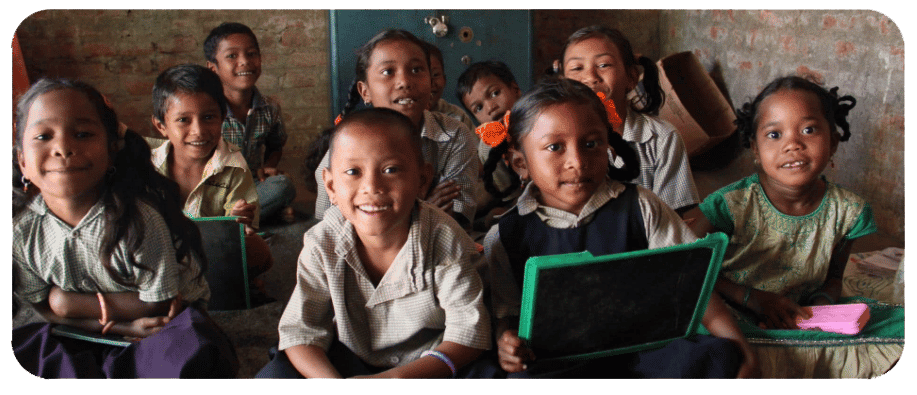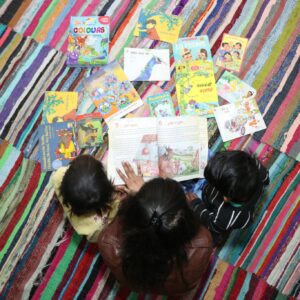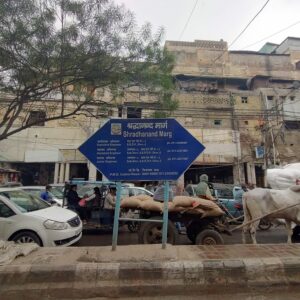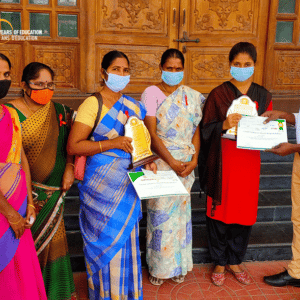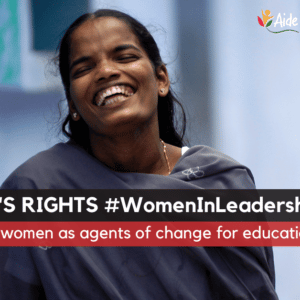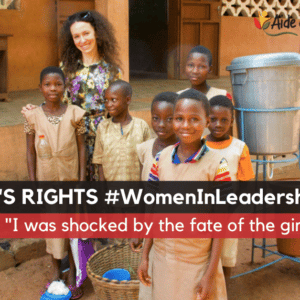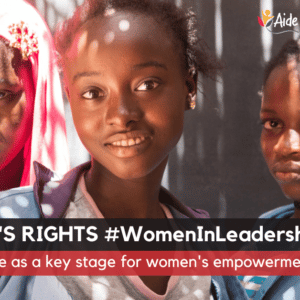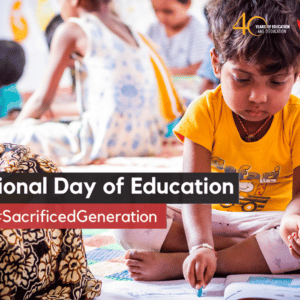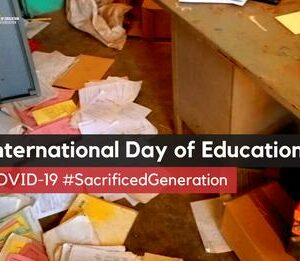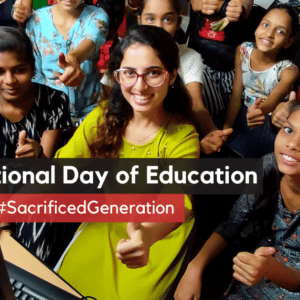The COVID-19 pandemic has created a lot of challenges in the global education system. With each passing wave, the situation is only going bad to worse forcefully confining children to homes for the last 18 months. This has caused severe anxiety and pressure on the children disturbing their overall mental and physical well being. To mitigate the loss, Aide et Action innovated several strategies to ensure continued learning of children and youth from most marginalized communities.
Whatsapp as a tool for education
Few months into the lockdown, the education has changed dramatically with distinctive rise of e-learning tools. AEA started exploring e-learning applications, particularly tools which were easily accessible to engage children whose parents could afford smartphones. Whataspp, the multipurpose message app which runs even with limited internet connectivity and was accessible to most of the people was adapted to reachout to the children. Whatapp groups were created and online classes were conducted during non-working hours when parents were at home.
“When lockdown was imposed, we started taking online classes through WhatsApp groups. The class timings were 6 am to 8 am in the morning as many parents used to leave for work after 8 am and there was no phone available at home. If I used to get late even by 5 min the children used to start calling me to ensure that they do not miss out on anything, they used to be very excited and used to wait for the class to begin,” says Sangeeta Rai, Education Facilitator, iMpower club.

Following the online class, the facilitators gave assignments to children and reviewed their progress regularly. For those children who couldn’t access smart phones, worksheets were distributed whenever the facilitators visited these children.
“We are happy with the online classes. Children are fully occupied with learning and doing something creative. Their skills are improving. Particularly during this COVID time, these kinds of activities are keeping them engaged. Otherwise they would just sit idle at home,” says a parent, whose children attend the iMpower club in Gurugram.
Use of TV and Radio in Education
In the North Lakhimpur district of Assam in North East India, children are encouraged to watch the online education programmes broadcasted on the state-owned television. Simultaneously, teaching content was created with the support of local government teachers and was shared on the WhatsApp groups specially created for the benefit of the children.
In the intervention areas in Nepal, use of radio turned out to be highly effective. The team pre-informed the community, teachers and village governance bodies and ensured the participation of children in the radio classes.
Mothers become teachers
For the children, particularly from the tribal belt of Central India, who are digitally excluded, AEA promoted mothers’ committees came in handy. These women, called badlav didis, who had already received training to support the teachers in schools and bridge the gap between community and school were roped in to provide education to children at the specially setup learning corners in their homes.
“Aide et Action team sensitized mothers like me on the importance of continued education of our children. Firstly, they trained us to develop low cost and no cost learning material using locally available resources. We were also trained on joyful learning techniques to ensure the continuous learning for reading, writing and arithmetic” says Reshma Goulagsingh, a badlav didi.
“Daily we go to the learning hub in my village where our mothers teach us Hindi (language) and mathematics. It is very exciting to learn from our mothers and we enjoy it thoroughly,” says a student.

The impact of mothers’ intervention in education is huge. The Government of Madhya Pradesh has issued an order to involve mothers committee members in all School Management Committees in the education of the children. With the support of around 500 women in tribal belts of Jhabua and Alirajpur District in Madhya Pradesh, continuous education of more than 8000 children is ensured through self-sustained community-based model.
Education centres for returnee migrant children
To bridge the learning gaps of migrant children who are already deprived of education due to school closure during COVID-19, Aide et Action initiated education centres for returnee migrant children in their villages across 3 districts of Odisha.
These centres focused on teaching the basic skills of reading, writing, spelling and comprehension which helped to stimulate meta-cognition, improve organizational skills, increase attention and create self-esteem among the children.
“We usually enroll migrant children at a neighbourhood school at their destination places and after return in their village school. But as the schools are closed, we are bridging their learning gaps so that when the schools will be opened, they won’t face any difficulty to catch up with the study,” says Lochan, Education facilitator.
Aide et Action is currently providing continued pre-primary and primary education for 2500 children of seasonal migrant families in India both at their source and destinations.
iLEAD goes digital
After the announcement of COVID lockdown by Indian and Sri Lankan governments, iLEAD, the vocational training programme of Aide et Action immediately adopted digital online learning tools such as Google classroom and Zoom to reach out and provide skill training to the iLEAD trainees. Several online modules and resources were developed and made accessible to the youth through AEA’s ‘iWAY’ portal.
“Immediately after the lockdown was announced, we started engaging the youth through virtual classes. While many had access to smartphones, some students who live in the interiors had issues with internet connectivity. There were instances where they would climb on top of a tree to catch the signal. They were very serious. We too tried to developed several online resource material which was useful for them to refer after the classes,” says Nancy, an iLEAD faculty in Sri Lanka. “Also for those youth who lost their jobs during COVID, we reskilled them to respond to the needs of the current digital market and helped them get a job,” says Nesam, an iLEAD faculty in India.
Though lockdown heavily impacted the lives of both iLEAD trainees and alumni, AEA’s support to the youth and advocacy with employers ensured the youth to overcome these challenges to a certain extent. “When we came to know that many business entities got shut during the lockdowns and many of our alumni were denied salaries, we advocated with the employers and ensured that they got their salary dues,” says Ben Davis, Programme Officer, AEA Chennai Regional office.
The COVID pandemic also accelerated e-commerce business paving way for new income source for iLEAD students. Around 40 students in 3 iLEAD centers are now engaged in online businesses after registering in authentic international online markets.


